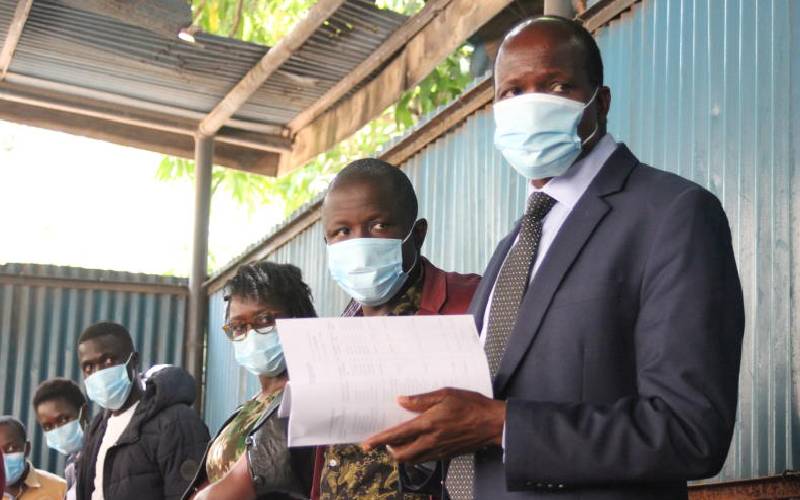×
The Standard e-Paper
Join Thousands Daily

Migori Governor Okoth Obado (right) with his children at Milimani court last Thursday. [Collins Kweyu,Standard]
From their grand home in Migori, referred to by locals as ‘state house’, to the dingy police cells, the family of Governor Okoth Obado has been in unfamiliar territory for the last five days.